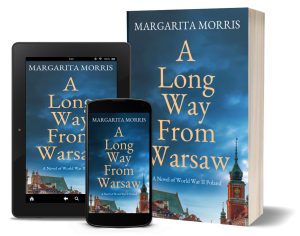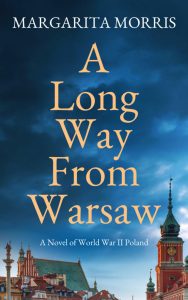 A Long Way From Warsaw is a novel that tells the story of Poland in World War II through the eyes and experiences of the fictional Nowak family living in Warsaw. I’m interested in the way that ordinary people are forced into extraordinary circumstances when confronted with traumatic events, such as war. Although the family in my story is fictional, what happens to them happened to many such people in Poland during this turbulent time.
A Long Way From Warsaw is a novel that tells the story of Poland in World War II through the eyes and experiences of the fictional Nowak family living in Warsaw. I’m interested in the way that ordinary people are forced into extraordinary circumstances when confronted with traumatic events, such as war. Although the family in my story is fictional, what happens to them happened to many such people in Poland during this turbulent time.
First, a little background to Poland as it was in 1939.
Poland has a long and complicated history. Suffice to say that the Second Polish Republic was established in 1918 in the aftermath of the First World War when the German, Austro-Hungarian and Russian Empires collapsed. Poland’s borders were drawn up at Versailles and were further east than they are today. For example, the Second Polish Republic encompassed the cities of Lwów, now Lviv in Ukraine, and Wilno, now Vilnius, the capital of Lithuania. Wrocław, now in the west of Poland, was in Germany and was called Breslau. Poland’s access to the Baltic Sea was via the Danzig Corridor, a strip of land that divided most of Germany from the province of East Prussia, a situation that Hitler found intolerable.

The Second Polish Republic was extremely vulnerable because she was sandwiched between two very powerful nations, neither of which thought that Poland had a right to exist: Germany and the Soviet Union.
It’s well known that World War Two started when Germany invaded Poland on the 1 September 1939. In response, Britain and France declared war on Germany two days later. What is less widely understood, at least in the west, is that the Soviet Union also invaded Poland on 17 September. In August of that year Nazi Germany and the Soviet Union signed a non-aggression pact – the Molotov-Rippentrop pact – named after the two foreign ministers. The pact was a guarantee of peace by each party towards the other. Hitler and Stalin were allies and they carved Poland up between themselves. Of course, the pact was torn to shreds in June 1941 when Germany invaded the new western border of the Soviet Union.
Poland found itself at the heart of the battle between fascism and communism, whilst not wanting either.
In my novel, the three siblings of the Nowak family (Lech, Anna and Jan) and their parents all have very different experiences of the war. Lech is called up to fight and is optimistic about Poland’s chances, until the German Blitzkrieg takes Poland by storm. Escaping eastwards, he soon finds himself at the mercy of the Soviets. Anna puts herself in danger by becoming an active member of the resistance. Arrested by the Gestapo, she suffers the fate of many Polish women at Ravensbrück concentration camp. Jan is only eleven when war breaks out. He thinks he’s too young to do anything useful, but in 1944 he joins other teenagers in the Polish Home Army in the Warsaw Uprising. By the end of the war, the members of the family will find themselves scattered to the four winds, their country irrevocably changed.
I like to visit the places I write about and in 2020 I managed a trip to Germany and Poland, despite the pandemic. My first stop was Berlin from where I visited Ravensbrück concentration camp. For a moving and detailed account of life at Ravensbrück, I would recommend Sarah Helm’s book If This is a Woman. During the war, Ravensbrück was a place of shocking cruelty, notorious for the illegal medical experiments performed on the women who became known as the Polish Rabbits. Today, it is a solemn and fitting memorial to those dark times.
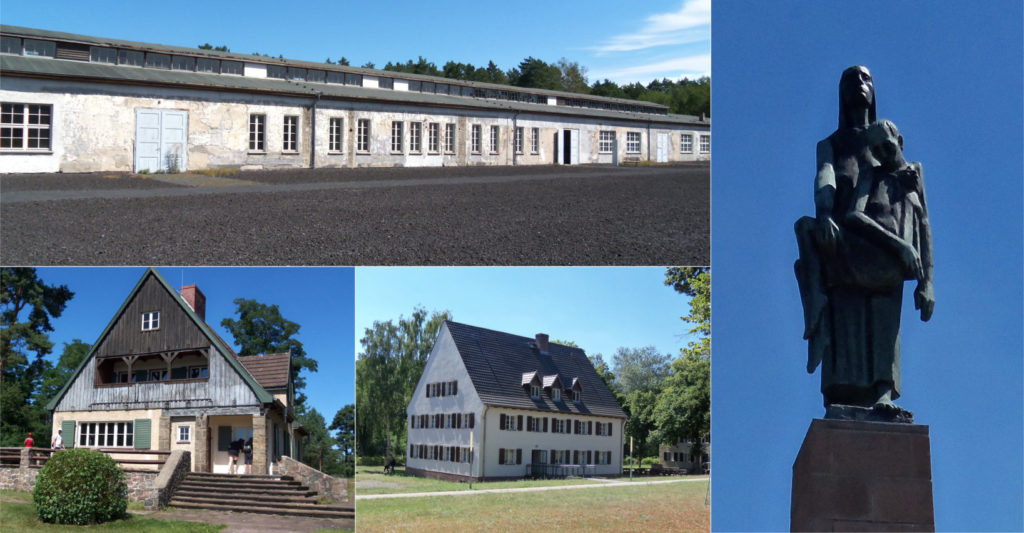
Warsaw was razed to the ground in the aftermath of the Warsaw Uprising, so the beautiful old city you see today is a reconstruction.
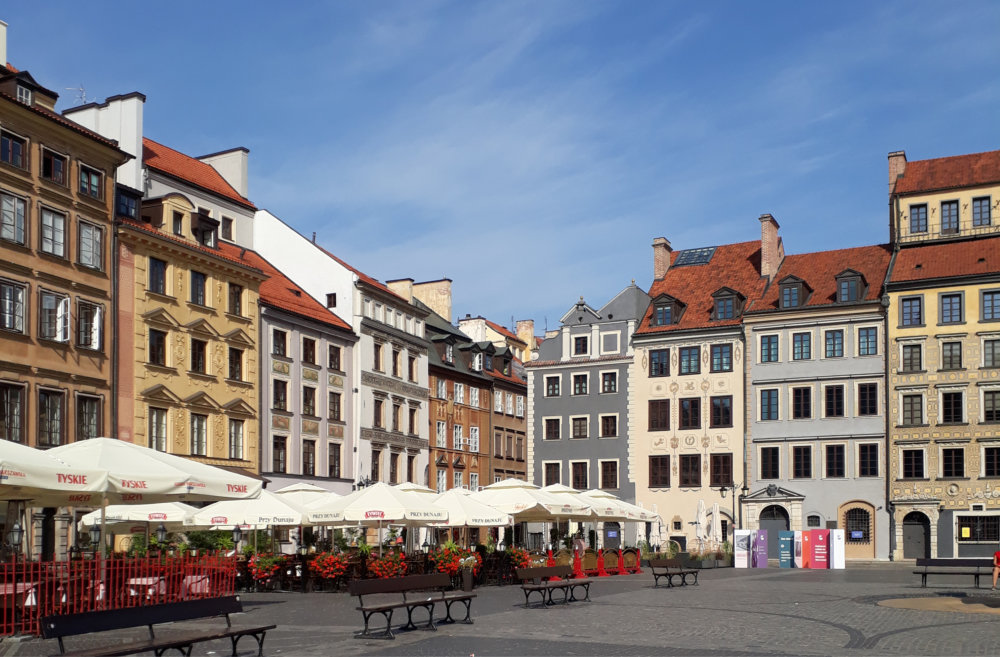
Walking around the city, I found dozens of memorials to the Warsaw Uprising, sometimes just a small plaque, some flowers and a lighted lamp. The Warsaw Uprising was a fierce two-month-long battle between the Polish Home Army and the Germans in August and September 1944. It is fittingly commemorated in a set of dramatic statues near the Krasińskich Gardens. Noman Davies’s book Rising ’44 gives a vivid account of Poland during the war and the Uprising in particular.
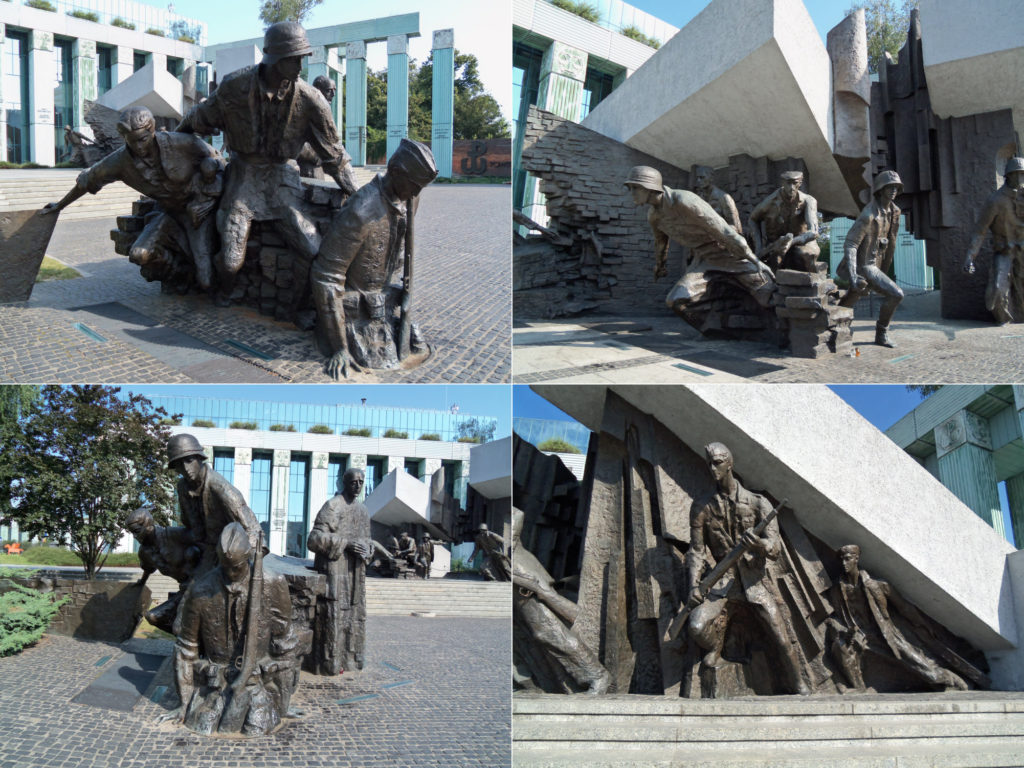
A Long Way From Warsaw is available in Kindle and Paperback. The Kindle version is available to read on Kindle Unlimited.
Click here to buy now.
